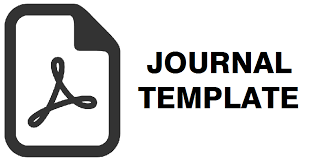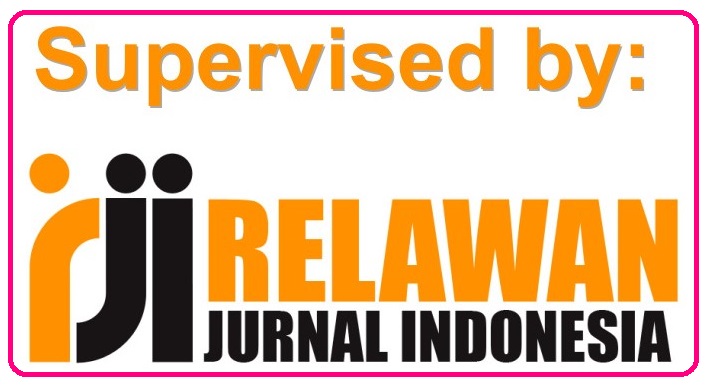Legal Framework Regulating Switching and Disciplining of Members of Political Parties:
Tanzanian and South-African view-point
DOI:
https://doi.org/10.31849/joels.v4i1.12535Keywords:
Regulation, switching, disciplining, members of political partiesAbstract
Globally, political parties seem to be common vehicle through which general public participates in governmental decision-making. This is influenced by the increased democratization evidenced by many countries’ adoption of multipartyism. Consequently, South Africa’s (SA) and Tanzania’s legal frameworks are not exception. Despite such influence Tanzania in particular, improperly regulate switching and disciplining of members of political parties. Through a human right approach this paper carries out a comparative review of SA and Tanzanian legal frameworks on regulation of switching and disciplining of members of political parties. The qualitative analysis of documents reviewed shows SA has adopted constitutional principles the basis of which regulation of political parties contribute to popular participation and elimination of improper switching and disciplining of members of political parties. Tanzania’s legal framework is informed by SA on; cessation of political party membership while retaining the membership in decisions making organs and disciplining of members of political parties.
References
Tanganyika Law Society and the Legal and Human Right Center v Tanzania and Rev. Christopher R. Mtikila v Tanzania; ACHPR Consolidated matter, No. 09/2011/11/2011 (African Court on Humana and Peoples’ Rights 2011).
All Africa. (2017). Tanzania Judiciary backed CUF legislators at crossroads, Daily News, Dar es Salaam 29/11/2017. https://allafrica.com/stories/201711290457.html
Anthony, L., & Hilderman, J. (2016). The Future of Democracy: Reimagining how we evaluate democracy and political participation. Inter-Parliamentary Union. http://archive.ipu.org/dem-e/idd/resources.htm
African Charter on Human and Peoples’ Rights, (1986).
Kigali Declaration, (2003).
African Charter on Democracy; Elections and Governance, (2007).
AU. (2015). Agenda 2063 The Africa We want.
Barry, B. (2002). Underlying concepts and theoretical issues in public participation in resource development. In D. Zillman, A. Lucas, & G. (Rock) Pring (Eds.), Human rights in natural resource development: Public participation in sustainable development of mining and energy resources. Oxford University Press.
Bratton, M. (2008). Poor people and democratic citzenship in Africa. In A. Krishna (Ed.), Poverty, participation , and democracy: A global perspective. Cambridge University Press.
Collins English Dictionary. (n.d.). https://www.collinsdictionary.com/dictionary/english/merge
Dieng, A., & Majinge, C. R. (2011). The right to democratic governance in international law and the African charter on democracy, elections and governance,. Zanzibar Year Book of Law, 1.
Dunsen, N. (2017, June 12). Gharama iliyojificha kwa wanaohama vyama. Mwananchi. http://mobile.mwananchi.co.tz/Habari/Gharama-iliyojificha-kwa-wanaohama-vyama/1597580-4216500-format-xhtml-gxftcsz/index.html
EAC. (n.d.). EAC Partner states: United Republic of Tanzania. 26/12/2018. https://www.eac.int/eac-partner-states/tanzania
Electoral Commission of South Africa. (n.d.). Political party list. http://www.elections.org.za/content/Parties/Political-party-list/
Fimbo, G. M. (2013). Multipartyism, constitutions and the law in Africa. Law Africa.
Font, J., Wojcieszak, M., & Naworro, C. (2015). Participation, representation and expertise: Citzen preferences for political decision making processes. Political Studies, 63(1).
Gherghina, S. (2014). Shaping the parties Legitimacy: Internal regulation and membership organizations in post communist Europe. International Political Science Review, 35(3).
Goeke, M., & Hartmann, C. (2011). The regulation of party switching in Africa. Journal of Contemporary African Studies, 29(3).
Hamad, A. B. (2019). The impact of political reforms on stability in Jordan (2011-2018). Open Journal of Political Science, 9.
Abadian Salehe v Dodoma Wine Co.Ltd, TLR 113 (High Court of Tanzania 1990).
Maziba Bakari Haji and others v The Registered Trustees of the Civic United Front and the Chairman of the Civic United Front (CUF), Miscellaneous Civil Application No. 479 of 2017 (High Court of Tanzania 2017).
John, P. (2009). Can citzen governance redress representative bias of political participation? Public Administration Review.
Kanyeihamba, G. (2006). Commentaries on Law, politics and governance 2nd Impression. Law Africa.
Kazoba, G. (2013). Protection of consumers and guard against counterfeit and sub-standard pharmaceticals in Tanzania: Examining national, regional and instituonal frameworks. Dar es Salaam University Press.
Kelly, N. (2016). Party registration and political participation: Regulating small and ‘micro’ parties. In A. Guaja & M. Sawer (Eds.), Party Rules?: Dilemmas of political party regulation in Australia. ANU Press. https://www.jstor.org/stable/j.ctt1rrd7k8.10
Kivoi, D. (2014). Factors impeding political participation and representation of women in Kenya. Humanities and Social Science, 2(6).
Knights, M. (2009). Participation and representation before democracy: Pettion and address in premodern Britain. In I. Shapiro, S. Susan, E. Wood, & A. Krishner (Eds.), Political representation. Cambridge University Press.
Kosiara, K.-P., Scarrow, S., & Haute, E. (2017). Rules of Engagement? Party membership cost, new forms of party affiliation, and partisan participation. In S. Scarrow, P. Webb, & T. Poguntke (Eds.), Organising political parties: Representation, Participation, and Power. Oxford University Press.
Legal and Human Right Center. (2018). ‘Unknown Assailants’: A Threat to human rights: Tanzania human rights report.
Makulilo, A. (2013). Introductory Note to Tanganyika Law Society and the Legal and Human Right Center v Tanzania and Rev. Christopher R. Mtikila v Tanzania (AFR.CT.H.R.). International Legal Materials, 52.
Manin, B., Przeworski, A., & Stokes, S. (1999). Election and representation. In A. Przeworski, S. Stokes, & B. Manin (Eds.), Democracy, accountability, and representation. Cambridge University Press.
Msekwa, P. (2000). Reflection on Tanzania’s first multi-party parliament 1995-2000. Dar-es Salaam University Press.
Msuya, E. (2018, January 4). Mambo mawili yaikwamisha Tanzania katika Mkataba wa Utawala bora,. Mwananchi.
Mubangizi, J. (n.d.). Democracy and development in the age of globalization: Tension and contradictions in the context of specific African challenges. Law Democracy and Development.
Mwandish Wetu. (2019, 01). ‘2019 mwaka mpya wa upinzani’. Rai.
Mwandishi wetu. (2018, November 14). Serikali yataja sababu zakutoridhia Mkataba wa AU. Habari Leo.
Mwangulumbi, J. (2017, December 11). Jumuiya ya Kimataifa inavyobadili kauli, msimamo wa upinzani na Serikali Kenya. Mwananchi.
Nkobogo, J. (2012). The doctrine of precedent in the High Court and the case of conflicting decisions: Efforts to ameliorate the problem. The Tanzania Lawyer, 1(2).
Nyati, L. (2008). What has the constitutional Court given the public? Merafong Dermacation Forum and others vs President of South Africa and others (2008) ZACC 10. 2008. Law Democracy and Development, 12(2).
Olaniyan, K. (2016). Corruption and human rights Law in Africa. Hart Publishing.
Social charter of the Americas, § 22 (2012).
Pearce, J. (2010a). Introduction. In J. Pearce (Ed.), Participation and deomocracy in the Twenty-First Century City. Palgrave Macmillan.
Pearce, J. (2010b). Participation as field of study and practice: A modest contribution. In J. Pearce (Ed.), Participation and democracy in the Twenty -First Century. Palgrave Macmillan.
Rashkova, E., & Biezen, I. (2014). The legal regulation of political parties: Contesting or promoting legitimacy ? International Political Science Review, 35(3).
Regan, K. . O. (2010, August 27). Political parties: The missing link in our constitution? Political parties in South Africa: The interface between law and Politics.
Renn, O., Webler, T., Rokel, H., Dienel, P., & Johnson, B. (1993). Public participationj in decision making: A three step procedure. Policy Science, 26(3).
Constitution of Kenya, (2010).
Rowe, G., & Frewer, L. (2000). Public participation Methods: A framework for evaluation. Science, Technology and Human Values, 25(1).
SADC. (n.d.). United Republic of Tanzania. Retrieved 26 December 2018, from https://www.sadc.int/member-states/tanzania/
SADC. (2012). South Africa. ) https://www.sadc.int/member-states/south-africa/
Schwartz, D., & Grilily, D. (2017). Feasibility of participatory democracy -Examination of the influence of phenomenon of registration to parties in Israel on the level of citzen’s political participation. Open Journal of Political Science, 7.
Sharma, L. (2014). International human rights. Venus Books Publishers and Distributors.
Smith, A. (n.d.). 5 South Africa Natural Resources that has changed the world. https://buzzsouthafrica.com/south-africa-natural-resources/
Merafong Demarcation Forum and 10 others vs President of Republic of South Africa and 15 others, CCT 41/07 [2008]ZA CC 10 (South African Constitutional Court 2008).
Svasand, L. (2014). Regulation of political parties and party functions in Malawi: Incentive, structures and selective application. International Political Science Review, 35(3).
Transparency International. (2017a). Corruption perception index 2017. https://www.transparency.org/country/ZAF
Transparency International. (2017b). Corruption perception index 2017. https://www.transparency.org/country/TZA
UN. (n.d.). The Human Rights Based Approach to Development Cooperation: Towards a Common Understanding Among UN Agencies. UN. Retrieved 14 January 2019, from https://hrbaportal.org/the-human-rights-based-approach-to-development-cooperation-towards-a-common-understanding-among-un-agencies
Universal Declaration of human rights, § 21 (1) (1948).
International Covenant on Civil and Political Rights, (1966).
Convention on the elimination of all forms of discrimination against women, § 7 (b) (1979).
Rio Declaration on environment and Development, § Para 10 (1992).
UN. (2012). General Resolution No. 66/288, The future we want.
United Republic of Tanzania Constitution, (1977).
Uwizeyimana, D. (2012). Democracy and pretend democracy in Africa: Myth of African Democracies. Law Democracy and Development, 16.
VOA. (n.d.). Idadi ya waliohama Chadema, CUF kwenda CCM yafikia 138. Retrieved 23 December 2018, from https://www.voaswahili.com/a/idadi-ya-waliohama-chadema-cuf-kwenda-ccm-yafikia-138/4534990.html
Warioba, I. (2012). The first-past-The Post Electoral system: The Tanzanian experience,. The Tanzania Lawyer, 1(3).
World Bank. (2017). World Bank National Accounts data and OECD National Account data files 1960-2017. https://data.worldbank.org/indicator/NY.GDP.MKTP.CD?locations=ZA
World Bank. (2018). Tanzania over view. World Bank. https://www.worldbank.org/en/country/tanzania/overview


















